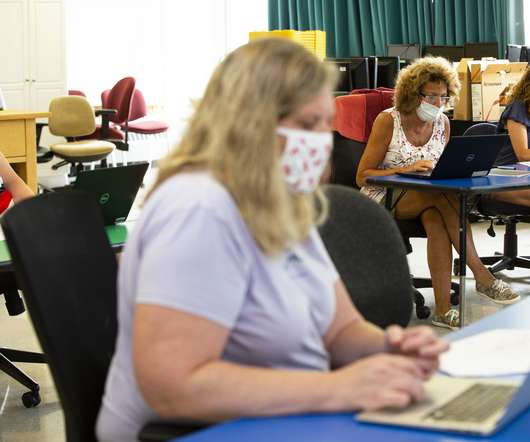Digital divide: Gap is narrowing, but how will schools maintain progress?
The Hechinger Report
AUGUST 25, 2021
As teachers develop lesson plans, they also face lingering questions, in Maine and nationally, over the possibility of a return to remote learning and concerns about ensuring all students have access to the devices and high-quality broadband they need to do classwork and homework. 18, 2021, in Brunswick, Maine.
















Let's personalize your content